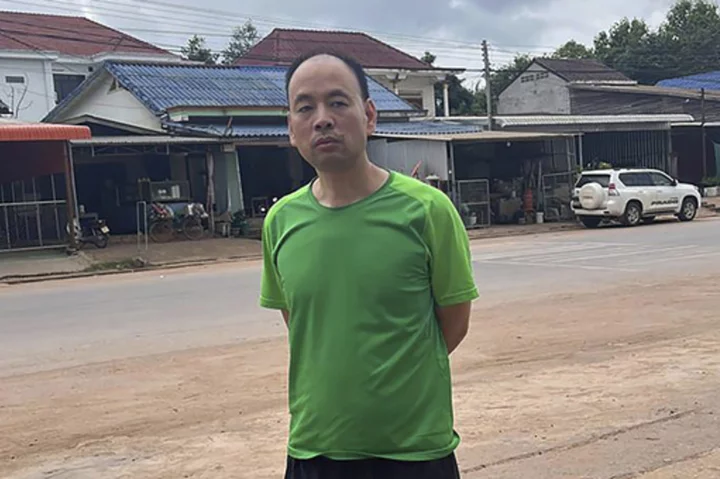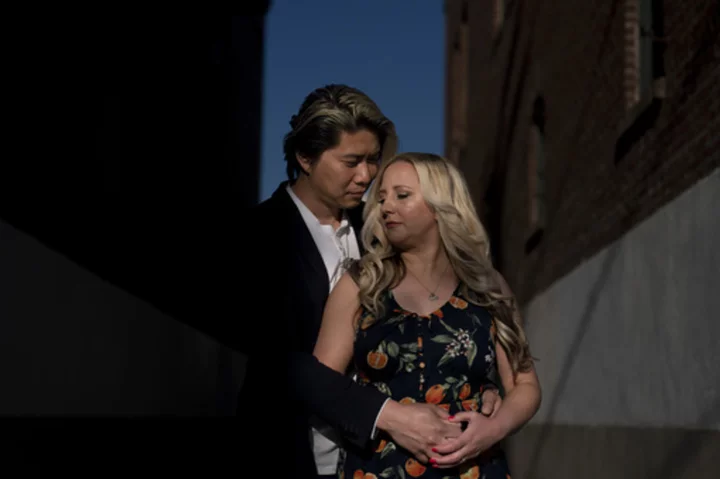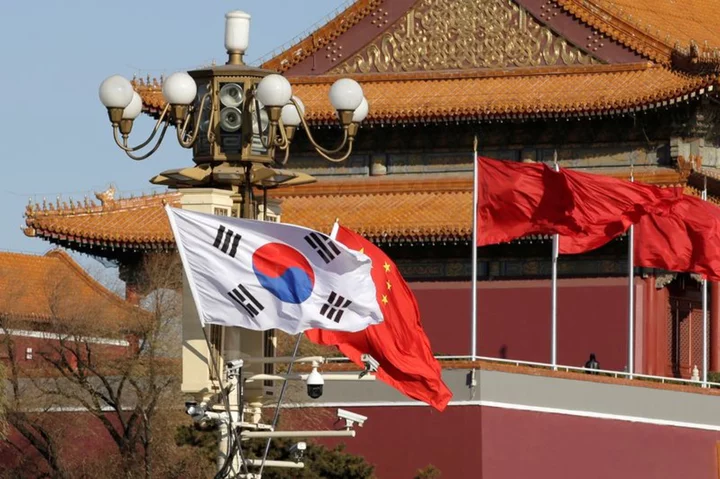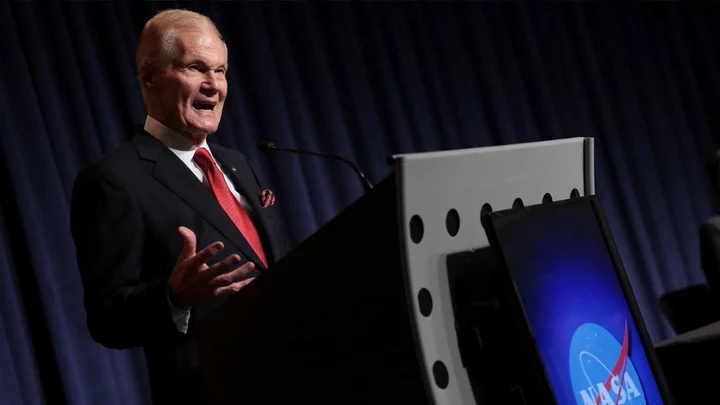BEIJING (AP) — A human rights lawyer who was arrested in neighboring Laos has been deported back to China, his attorney said, despite pleas from rights groups and United Nations experts for his release.
Lu Siwei was stripped of his legal license for taking on sensitive cases and was fleeing China when he was arrested in the Southeast Asian country earlier in the summer. According to Lithnarong Pholsena, Lu's attorney, officials at the prison where Lu was held said Thursday that Chinese police took Lu and two busloads of other Chinese citizens detained in Laos back to China earlier this week.
Bob Fu, a Texas-based Christian activist who was assisting Lu, said Laos had violated international law by deporting Lu to China, where family members and activists fear he may be at risk of imprisonment and torture.
“We failed,” Fu said. “It’s a shame for the international human rights community.”
Lu had a history of taking on sensitive cases, and of navigating the fraught and murky waters of defending people who are deemed to be the political targets of authorities.
China’s fledging legal rights movement has been heavily targeted under its leader, Xi Jinping. In 2015, hundreds of activists and rights lawyers were arrested in what later became known as the 709 Crackdown, named after July 9, the day it was launched.
Lu, an insurance attorney by trade, defended some of those detained, including rights lawyer and Xi critic Yu Wensheng.
In 2021, Lu was stripped of his legal license after representing a Hong Kong pro-democracy activist who tried to flee to Taiwan. Later that year, Lu found out he was barred from leaving China when he tried to attend a visiting fellowship in the United States.
For over a year, Lu has been separated from his wife and daughter, who both resettled in the United States in 2022. He fled China in late July, crossing into Vietnam and then into Laos. He was seized by Laotian police while boarding a train for Thailand, where he was planning to catch a flight to the United States to join his wife and daughter.
Lu was charged with entering Laos on a fake visa, Lu's attorney Pholsena said, citing documents she received from Laotian prosecutors. But Fu, the activist assisting Lu, disputed that assertion, saying the visa was authentic and sending images of Lu’s visa to the AP to back his claim.
In August, 68 rights groups issued a joint statement expressing concern over the arrest. Beijing has stepped up its pursuit of dissidents and vulnerable groups overseas, the statement read, with those arrested often disappearing for months or years. A group of U.N. experts called on Laos to release Lu.
“It is outrageous that human rights defenders working peacefully to promote, defend or protect the rights of others, are being persecuted even while fleeing,” U.N. experts said at the time.
On Monday, the Chinese police formally requested Lu be sent back to China, saying he was suspected of illegally crossing national borders, according to Pholsena and an extradition document posted online. Soon after, Lu was taken back to China, his attorney said.
Lu's wife, Zhang Chunxiao, declined comment when contacted by the AP, saying she didn't have the strength to make an immediate statement.
The Chinese foreign ministry didn’t immediately respond to a request for comment. Numbers listed for the Laotian foreign ministry rang unanswered, while the Laotian embassy in Beijing didn’t immediately respond to emailed requests for comment.
Lu’s wife Zhang said that while in China, Lu was under surveillance but wasn’t being investigated or charged with a crime.
Dissidents on the run from the Chinese state have reported harassment elsewhere in Southeast Asia. In a recent case in Thailand, bomb threats were called in under the names of a Chinese dissident and his mother.
___
Associated Press videojournalist Tian Macleod Ji contributed to this report from Bangkok, Thailand.









